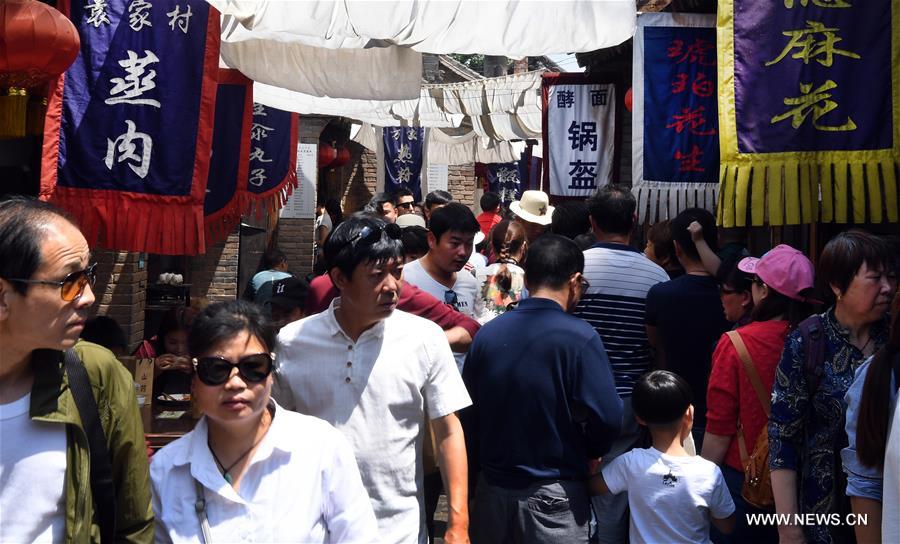How well do you think you know Chinese people, culture?
By Carl Gene Fordham | chinadaily.com.cn | Updated: 2020-06-13 16:52

From the fortune cookie to the foo dog, Chinese culture has long been misunderstood by the West. In his book Sinologism: An Alternative to Orientalism and Postcolonialism, Ming Dong Gu wrote of the tendency of Western scholars to interrogate China from within their own frame, often distorting the reality of its people and culture, and condemning aspects they disliked when it was fashionable to do so. As a lifelong learner of the language and culture of the Chinese, my own mind has been preoccupied with these same concerns for quite some time, but I never quite knew how to put them into words until now.
During my first decade spent learning the Chinese language, I was under an illusion about what China was. To “prove” myself to my Chinese peers, I would often get into arguments with them. I always assumed I was right, that I knew better than they did about their own culture. I was always ready to offer a critical opinion – it was how I, like many Westerners, was brought up, to believe that critique was superior to common sense, that debate was the most telling sign of intelligence. But any point can be argued well with persuasive oratory and a susceptible audience, regardless of how reasonable it is. Just ask any of us who have won a debate despite not actually believing in any of our own arguments.
It wasn't until the end of my second decade of learning Chinese that I realized just how little I knew about the universe of knowledge that makes up the Chinese civilization. The cliché “you don't know what you don't know” comes to mind; in China, we talk of the frog at the bottom of the well who can only see part of the sky, and would scarcely know what the ocean would look like. If we really want to understand China better, we must ask the question: Can we imagine a way of looking at the world that does not take a Western preconception as its starting point?
Now well past my second decade of learning Chinese, I have come to the realization that the China of the Chinese and the China of the West are two very different things. I have also seen the limitations of Western academia, a medieval, now globalized institution that influences how even the Chinese themselves interpret their own cultural heritage, let alone Westerners.
Take, for example, the distinction between literature, history and philosophy that cuts the humanities up into fields of inquiry that Westerners deem important, and place academics in these respective departments, often with little expectation of mobility between them. In premodern China, there was little equivalence of these in the collective consciousness. Many traditional Chinese texts are pieces of literature that also happen to record historical events, while contemplating what we in the West would consider philosophical questions.
The Chinese have long used terms they imported from the modernized West – concepts of literature, history, philosophy, religion and so on – without thinking too much about it. And yet as Westerners ourselves, we are rarely interested in the Chinese people’s native forms of knowledge.
It has always jarred with me that when the West talks of the “classics” and “classical studies”, Chinese literature is never part of the discussion. You could even argue it has been actively excluded. This ignores the fact that China is one of the few civilizations in the world with an ancient writing system that is still in use today. The impact Confucius, Mencius and Laozi have had on the world (i.e. East Asia) is equivalent to the impact Aristotle, Plato, and Socrates have had on the world (i.e. the West). By the 21st century, the majority of the Chinese classics had been translated into English and other major Western languages, and yet this unhelpful exclusion continues to this day.
By learning about Chinese culture from the mouths and pens of the Chinese people themselves, we can gain a fascinating insight into a civilization that has developed completely independently from our own, and whose worldview, cultural practices and literary traditions survive and are understood by the average person to this day.
Why not try asking a Chinese person about their culture and take the time to understand their response without prejudging it? Do you think you can listen with the intent to understand, rather than the intent to reply? I do not wish to blame anyone; what I am interested in is how we might bridge this gap. Surely the better we understand each other, the less likely we'll end up in conflict. I would suggest that in a post-COVID-19 world this is more important than ever.
Carl Gene Fordham is a doctoral candidate at the Department of Chinese Language and Literature, Peking University, China.
The opinions expressed here are those of the writer and do not represent the views of China Daily and China Daily website.
























